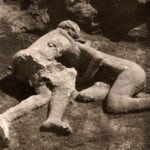 Mysteries
Mysteries  Mysteries
Mysteries  History
History 10 Surprising Stories About the Texas Rangers
 Humans
Humans 10 Philosophers Who Were Driven Mad by Their Own Theories
 Miscellaneous
Miscellaneous 10 Video-Game-Worthy Weapons and Armors from History
 Weird Stuff
Weird Stuff 10 Psychics Who Accurately Predicted Wartime Events
 The Arts
The Arts 10 Pieces of Art Inspired by a Broken Heart
 Health
Health 10 Science Fiction-Sounding New Medical Treatments
 History
History 10 Surprising Facts About the Father of Submarine Warfare
 Space
Space Ten Astonishing New Insights into Alien Worlds
 Weird Stuff
Weird Stuff 10 Bizarre Summer Solstice Rituals Still Practiced Today
 Mysteries
Mysteries Top 10 Haunting Facts About the Ghost Ship MV Alta
 History
History 10 Surprising Stories About the Texas Rangers
 Humans
Humans 10 Philosophers Who Were Driven Mad by Their Own Theories
Who's Behind Listverse?

Jamie Frater
Head Editor
Jamie founded Listverse due to an insatiable desire to share fascinating, obscure, and bizarre facts. He has been a guest speaker on numerous national radio and television stations and is a five time published author.
More About Us Miscellaneous
Miscellaneous 10 Video-Game-Worthy Weapons and Armors from History
 Weird Stuff
Weird Stuff 10 Psychics Who Accurately Predicted Wartime Events
 The Arts
The Arts 10 Pieces of Art Inspired by a Broken Heart
 Health
Health 10 Science Fiction-Sounding New Medical Treatments
 History
History 10 Surprising Facts About the Father of Submarine Warfare
 Space
Space Ten Astonishing New Insights into Alien Worlds
 Weird Stuff
Weird Stuff 10 Bizarre Summer Solstice Rituals Still Practiced Today
Top 10 Unethical Business Actions
This list was originally titled “Most Evil Corporations” but the author thought it would be best to keep the site’s neutral status and minimize the probability of this list being classified as slander. As long as there has been big-business there have been dubious and flat-out immoral actions taking place to preserve profit, market share and public image. This list cannot be ranked too effectively, as the extent and severity of the misdeeds cannot be measured, but the items have been chosen because of their human and long-term cultural impact.

Tip of the iceberg can describe the story below. Wal-Mart is company No. 1 in the world. It has the most revenue over any other company ($421 Billion). But its riches equal its controversies. This story is probably the most apt at describing the unethical treatment of its workers, because of the sheer senselessness of it.
In 2000, a collision with a semi-trailer left 52-year-old Deborah Shank with permanent brain damage and in a wheelchair. Her husband and three sons were fortunate for a $700,000 accident settlement from the trucking company. After legal costs and other expenses, the remaining $417,000 was put in a special trust to care for Mrs. Shank. However, six years later the providers of Mrs. Shank’s health plan, Wal-Mart, sued the Shanks for the $470,000 it had spent on her medical care.
Wal-Mart was fully entitled to the money; in the fine print of Mrs. Shank’s employment contract it said that money won in damages after an accident belonged to Wal-Mart. A federal judge had to rule in favor of Wal-Mart, and the family of Mrs. Shank had to rely on Medicaid and social-security payments for her round-the-clock care. Wal-Mart may be reversing the decision after public outcry.
However this case pinpoints Wal-Mart’s often criticized treatment of employees as a commodity and its sometimes inhuman business ethics.
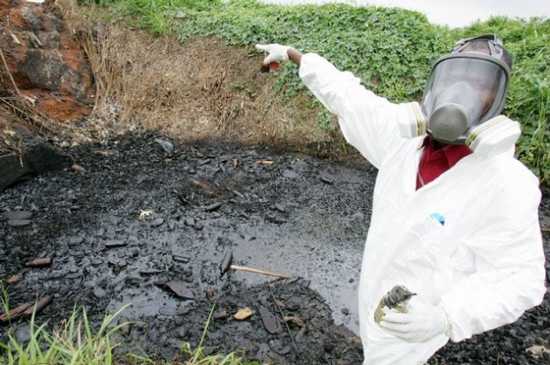
Earlier in the year, there was media frenzy in the U.K. over celebrities getting court injunctions to silence the press from reporting on their various misdeeds and grubby encounters. This story actually stems from a far more serious beginning, in 2006.
Trafigura is a multinational formed in 1993, trading in base metals and energy, including oil. It makes almost 80 billion USD a year. In 2006, it caused a health crisis affecting 108,000 people, after a ship leased by the company was told that, due to toxicity levels higher than expected, the price of transferring the waste on board to the processing plant in the Netherlands had increased twenty-fold. To avoid the charge, Trafigura ordered the ship to dock at other seaports until they could find someone who would dump the waste. At Abidjan, Côte d’Ivoire, one of Africa’s largest seaports, the waste was handed over to a newly formed dumping company, Compagnie Tommy, which illegally dumped the waste, instead of processing it. Many people there became sick due to exposure to the waste, and investigations began to determine whether it was intentionally dumped by Trafigura. Trafigura said in a press statement that their tests showed the waste not to be as toxic as had been claimed.
This was proven false by a 2009 UN report posted by Wikileaks.
When newspapers came to publish their own findings, which proved that Trafigura was guilty of releasing toxic waste, they “lawyered up” and started firing legal notices to all news outlets which were saying there was a connection between the dumping and the injuries reported in the Ivory Coast. The Guardian newspaper had conclusive evidence that Trafigura knew of the dumping, and had a report they were ready to publish, however the libel firm hired by Trafigura, Carter Ruck, applied for a super-injunction so that the paper couldn’t publish the report until a court decision was made. This caused MP Evan Harris to question the freedom of the press in the country. However, after a twitter campaign that spread the story in a matter of hours, the libel firm responsible backed down and allowed the report to be published.
Carter Ruck are still pursuing a libel case against BBC Newsnight for allegations made on television (later proven true by an independent report).
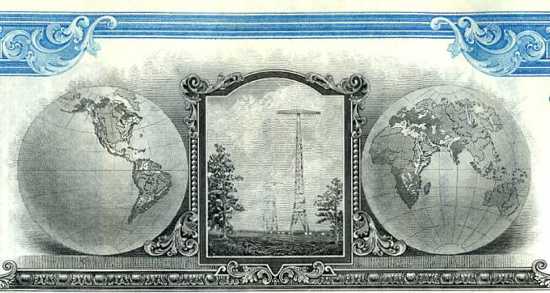
The ability for inventors and aspiring minds to call an idea their own, and theirs alone, is a very important mark of a fair society. Unfortunately, history is littered by examples of intellectual property being swallowed up by big corporations. In particular, Thomas Edison and the companies he formed with his vast wealth (RCA, General Electric) have always had a habit of trying to abuse the patent system for profit. The reason that Hollywood is the home of the movie industry is that film-makers in the 1920s were forced to abandon the east-coast because of the high royalties that Edison charged them for use of camera technologies. Edison even had hired goons to harass them for money.
But it was a policy of the RCA (Radio Corporation of America) that caused untold damage for inventors of the 20th century. The official company policy was that “The Radio Corporation doesn’t pay royalties” and, allegedly, David Sarnoff, the proud general manager of the company, boasted “we collect them [royalties]”. They repeatedly steamrolled inventors and small businesses to acquire their patents without licensing them, forcing the companies to collapse into the RCA’s arms because of the mounting legal fees. However, there is one notable exception – the inventor of electronic television, Philo T. Farnsworth, had his patent for electronic television and other components (notably the image dissector) approved in the early 30s, and no matter what the RCA did, they couldn’t get round Farnsworth’s patents. In 1939, a month after the war had started, the RCA accepted to pay, for the first time in their corporate history, a $1,000,000 patent license for Farnsworth’s electronic television. Legend has it there were tears in the eyes of the RCA men as they signed the document.
This whole practice was extremely unethical in terms of the technologies these companies prevented from reaching the market. Farnsworth hoped that “television would bring people together and prevent war”, but because of the RCA’s actions and endless lawsuits, television never got going until the 50s.
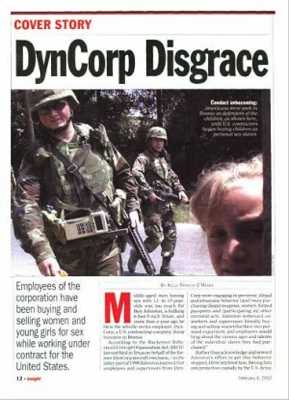
The first Private Military Company on the list, and certainly not the last, Dyncorp is a medium sized PMC with revenues of $3 Billion. PMC’s are probably the most likely company to become involved in unethical situations. They are being paid by governments to protect areas, and often take the same roles as soldiers. Mixing money with killing is never going to be straightforward; the laws that apply to a PMC soldier are always a gray area, so the law often doesn’t catch those that commit a crime.
Dyncorp has been employed in “Plan Colombia” (part of the war on drugs) and, in 2001, a group of Ecuadorian farmers filed a class-action lawsuit against DynCorp under the Alien Tort Claims Act, the Torture Victim Protection Act and state law claims in US federal court in the District of Columbia. The plaintiffs claimed that from January to February 2001, DynCorp sprayed herbicide almost daily, in a reckless manner, causing severe health problems (high fever, vomiting, diarrhea, dermatological problems) and the destruction of the food crops and livestock of approximately 10,000 residents of the border region. In addition, the plaintiffs alleged that the toxicity of the fumigant caused the deaths of four infants in this region. Although the usage of herbicides was sanctioned by US congress, Dyncorp never mapped out areas of civilian crops to avoid.
When Dyncorp was employed in Bosnia at the turn of the 21st century, it was revealed, by whistle-blower Ben Johnston, that DynCorp employees and supervisors engaged in sex with 12 to 15 year old children, and sold them to each other as slaves. Ben Johnston ended up fired, and later forced into protective custody. According to Johnston, none of the girls were from Bosnia itself, but were kidnapped by DynCorp employees from Russia, Romania and other places. DynCorp has admitted it fired five employees for similar illegal activities, prior to Johnston’s charges. In the summer of 2005, the United States Defense department drafted a proposal to prohibit defense contractor involvement in human trafficking for forced prostitution and labor. Several defense contractors, among others, DynCorp, stalled the establishment of a final proposal that would formally prohibit defense contractor involvement in these activities.
More allegations of this sort appeared in 2009, involving employees hiring Afghan “dancing boys” for their pleasure.
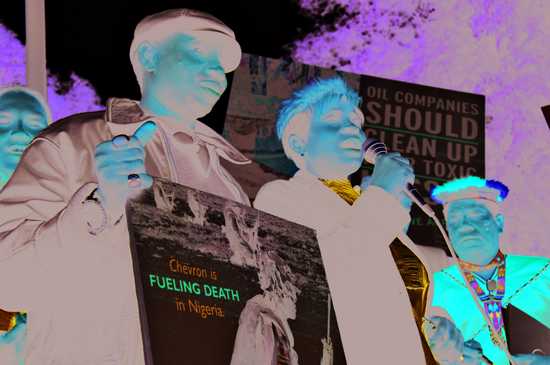
Ever since attainable petroleum oil was discovered in 1956, in the Niger Delta, Nigeria, companies such as Royal Dutch Shell and Chevron have been making the most of the poor area. In the 70s, the Nigerian government began forcing them to abandon their land to oil companies without consultation, and offering negligible compensation.
The government took control of this land so that it could be distributed to the oil companies. Resistance movements from the native people turned violent in the early 90s, and were threatening to disrupt the operations with mass action. This led to the government declaring that disturbing oil production was an act of treason.
Chevron had a military base at their Escravos facility, in the Delta State of Nigeria, which housed over a hundred soldiers. In 1999, when leaders of the Ikiyan people came to negotiate with the soldiers, who were already attacking different villages, they were shot at and up to 62 people were killed by the soldiers, including a seven-year-old girl. The soldiers proceeded to set the villages ablaze, kill livestock and destroy fishing equipment.

The biggest security PMC in the world and, like Dyncorp, is a minefield (sometimes literally) of ethical problems. However, treatment of its workers is what will be shown here.
Blackwater’s employee contracts routinely include clauses such as:
1) If you defy a direct order, for any reason, you will be abruptly terminated and Blackwater will withhold all back salary and bring legal action against your family.
2) If you die or are injured on a mission due to the negligence of Blackwater, you can’t sue them. If you sue them, they will withhold all your back salary and bring legal action against you and your family.
3) You can be terminated for any reason whatsoever, and if you sue them for wrongful dismissal they will withhold all your back salary and bring legal action against you and your family.
Basically, their contracting system holds employees in a state of legal servitude until they quit, and if they have a problem with Blackwater they will be sued by them until they go away. An infamous picture has circulated on the Internet of two Blackwater contractors dead, strung up after they dangerously went through Fallujah in a Jeep. Their superiors at Blackwater ordered them to do the run, even though they objected and the US Army had deemed it “operationally dangerous”, and refused to allow soldiers to enter. Blackwater also failed to provide a heavy gunner who was promised to the men to safeguard their trip. As a result, and the fact they couldn’t refuse the order without bankrupting themselves and their families, they ended up like that.
Blackwater show that they often ignore safety protocol to fulfill a defense contract and get paid. Though Backwater’s main source of controversy are the constant allegations of arms smuggling and connections in the government securing them no-bid contracts.
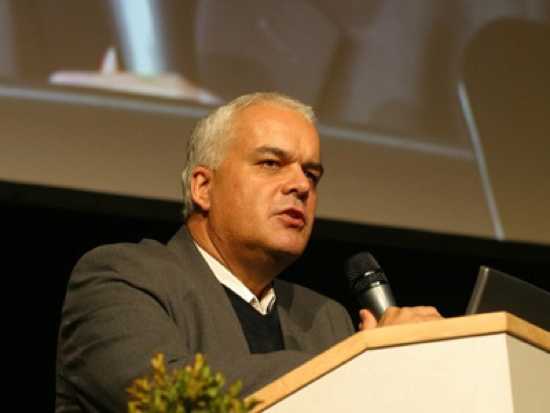
Matthias Rath is a doctor turned vitamin entrepreneur. He runs the Dr. Rath Health Foundation and founded the Dr. Rath Research Institute. He has been called “the most powerful crackpot on the Earth” due to the large amount of funds he has gotten from investors who can see the value of selling “vitamin pills” to cure the most serious of ailments.
In the UK, his adverts claimed that “90 per cent of patients receiving chemotherapy for cancer die within months of starting treatment”, and suggested that three million lives could be saved if cancer patients stopped being treated by conventional medicine. The pharmaceutical industry was deliberately letting people die for financial gain, he explained. These advertisements are highly detrimental to cancer sufferers and cancer research groups, it can be easy to look at someone who has lost all their hair to chemotherapy and think that it is a poison, but it is scientifically proven to fight cancer.
Before advertising standards agencies from all over Europe were finally able to stop some of the dishonest adverts (challenging alternative medicine claims are always difficult due to the very nature of the topic), Rath had made his fortune and walked into South Africa with all the acclaim and wealth he needed to place full page advertisements in newspapers saying “The answer to the AIDS epidemic is here”. “Anti-retroviral drugs were poisonous, and were a conspiracy to kill patients and make money”. Tragically, Matthias Rath had taken these ideas to exactly the right place. Thabo Mbeki, the President of South Africa at the time, was well known as an “AIDS protester”, and to international horror, while people died at the rate of one every two minutes in his country, he gave credence and support to the claims of a small band of campaigners who state that AIDS does not exist, that it is not caused by HIV, that anti-retroviral medication does more harm than good, and so on.
So, throughout the turn of the 21st Century, when the AIDS epidemic was at its peak, the South African government was arguing that HIV is not the cause of AIDS, and that anti-retroviral drugs are not useful for patients. They refused to roll out proper treatment programmes, and they refused to accept free donations of drugs. One study estimates that if the South African national government had used anti-retroviral drugs for prevention and treatment at the same rate as the Western Cape province (which defied national policy on the issue), around 171,000 new HIV infections and 343,000 deaths could have been prevented between 1999 and 2007.
Rath profited from all this anti-science feeling with his vitamin pills, which sold very well even though they were not supported by any trusted medical research. Matthias is constantly suing medical professionals for slander, when they say that his pills are useless and should not be seen as an alternative to tested medicines.
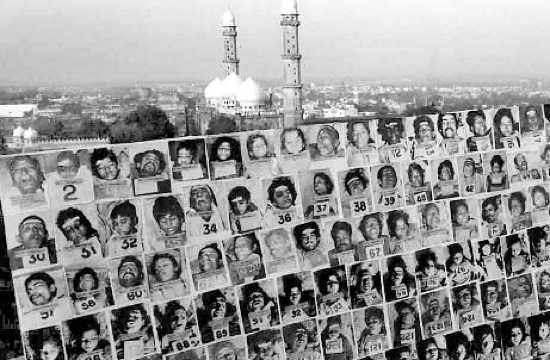
Dow Chemical already had a sinister reputation before they acquired Union Carbide, in 2001. Dow Chemical put a lot of money into its development and manufacturing of napalm for the U.S. military, a chemical which was infamous in the Vietnam War for giving people horrific burns and damaging a generation of unborn babies.
Union Carbide, though, is directly responsible for the deaths of around 8,000 Indian people in December 1984, and the birth defects that followed. The Bhopal disaster occurred when a pesticide factory in Bhopal, India, owned and operated by Union Carbide Corporation, leaked large and deadly amounts of Methyl isocyanate, a highly poisonous gas. So many people were affected because the workers at the plant were so poor that their families set up homes outside the factory gates.
Union Carbide offered $350 million in compensation, the Government of India said that the damages cost $3.3 billion; the Government, in the end, had to settle for $470 million. Throughout the years, UCC have had to fund hospitals and response centers after being nagged by officials, but many still say that what UCC have donated is negligible when compared to the human cost of the disaster.
Dow Chemical, who are the wealthier new owners of Union Carbide, have yet to make significant reparations to the people of Bhopal.

During World War Two, Siemens was a major player in the Nazification of Germany, rebuilding the army, creating a giant infrastructure: railways, communications and power generation.
More significantly for this list, they built factories at the camps Auschwitz and Buchenwald. It was typical for a slave worker to build electrical switches for Siemens in the morning, and be snuffed out in a Siemens-made gas chamber in the afternoon. The allies destroyed four fifths of Siemens operated buildings to destroy the brand of the Nazis; Siemens was seen as an icon of Nazi industry.
Siemens is one of the few companies that still exist today, with the same name as when it exploited Jewish labor in the 40s. They are still paying up in lawsuits filed by holocaust survivors. In a move destined for failure, Siemens tried to trademark the name “Zyklon” in 2002, with the intent of marketing a series of products under the name. Including gas ovens.
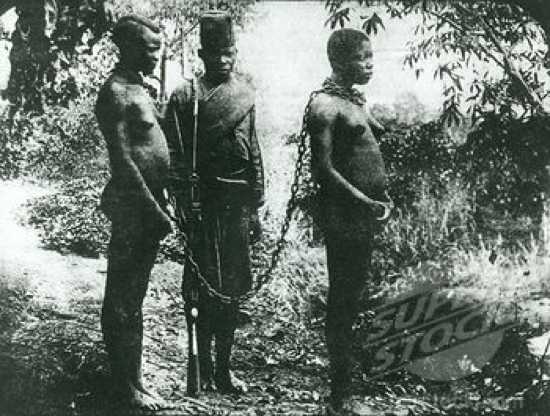
Profiting from genocide and turning a blind eye to it is one thing, but only one organization has committed what can be called genocide for the sake of industry. Founded in 1885, by Leopold II, King of the Belgians, the Congo Free State garnered control over areas now known as the Congo, Rwanda and Burundi through a non-governmental organization, the Association Internationale Africaine. Leopold had acquired the Congo at the Berlin Conference of 1884, which was to regulate the European colonization of Africa.
While under the pretense of conducting humanitarian efforts, e.g. building churches and educating the people, it established an industry of collecting ivory, en masse, using huge amounts of slave labor. Surveyors hired by Leopold found that the greatest riches that the tribe’s people could access was ivory. Employing the Force Publique (a combination of a police force, tax collector and gang of enforcers, who had been drafted from able-bodied Congolese men to serve the State), the men would troop along rivers finding villages, separating the men, women and children (rape was exceedingly common) and telling the men that if they did not find a certain amount of ivory they would never see their families again, though a lot of the time the families had already died of disease. Collecting ivory became harder once the elephant population had been decimated, so the FP changed tactics to frightening the villagers away and taking any supplies left behind, then burning everything to the ground.
The other chief export was rubber, Leopold wanted the workers to be proficient and highly motivated so this meant that failing to meet rubber collection quotas was punishable by death. The officers in charge of a particular village would have to bring the hands of those who didn’t reach their quotas as proof that the officers hadn’t used the bullets to hunt for food. Some soldiers “cheated” by simply cutting of the hand, and leaving them to die, saving ammunition. This even caused small wars between villages; hands had become a valuable item to have, as they can be handed into the officer when they couldn’t fill their unrealistic quota.
The entire control of the nation was put under very few people and King Leopold was the definite ruler (he ditched the façade of the Association Internationale Africaine soon into his rule). He directly maintained the country more than just about all other dictators before, and since, and it was his policy that for each bullet fired, a hand must be represented as proof it was used to kill a Congolese worker. This was purely for the sake of cost-cutting. He was running the most cost-efficient company the world had seen.
The rubber and ivory industry was grinding to a halt due to the lack of motivation for slaves and the dwindling supply of ivory. Leopold was amassing severe debts, until the rubber boom of the 1890s, which was needed for telegraph wire and car tyres. Rubber overtook ivory as the country’s main export, and profits went through the roof.
Estimates of the number of deaths that King Leopold II and the Congo Free State caused range from 10 million to 22 million, both valid claims. It also should be noted that, at the time, Africa’s entire population was between 90 and 133 million people.
The Congo Free State ended in 1908, after whispers of the crimes happening in the Congo became shouts. The Congo Reform Movement, which included among its members Mark Twain, Joseph Conrad, Booker T. Washington and Bertrand Russell, led a vigorous international movement against the mistreatment of the Congolese population. The European nations had finally decided that Leopold was abusing the Berlin Treaty, and so it was annexed to Belgium, who retained it until 1960.
Leopold never intended to keep the nation for a long time, it was his twenty year get-rich-quick scheme, and it worked. Leopold died the wealthiest man in Europe after living the high-life, spending the massive profits on his favorite luxuries: expensive homes, yachts and teenage prostitutes.
To learn more about the fascinating story of the Congo Free State I recommend watching the BBC Documentary “White King, Red Rubber, Black Death”






